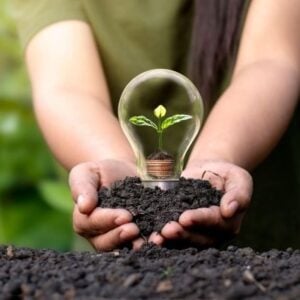Achieving the European Union’s energy and climate goals requires a significant reduction in overall energy consumption. Energy efficiency—defined as using less energy to perform the same tasks—is a key driver of the EU’s clean energy transition. To this end, the EU has committed to reducing final energy consumption by 11.7% by 2030 compared to 2020 levels.
In May 2025, the European Commission published its assessment of Member States’ National Energy and Climate Plans (NECPs), which detail national strategies for meeting EU-wide targets. While the assessment showed increased ambition across many countries, it also revealed a remaining gap in meeting the 2030 energy efficiency target, calling for further action.
Energy efficiency measures apply across sectors, from buildings and industry to transport. These include the use of high-performance materials for insulation, smart appliances, optimized industrial processes, and integrated infrastructure. The benefits of energy efficiency span three key areas: reducing greenhouse gas emissions, improving energy security by lowering fossil fuel dependency, and cutting energy costs for consumers and businesses.
Without the energy efficiency improvements made over the last two decades, the EU would have required 27% more energy to meet its needs today—equivalent to the total annual energy use of France, the Netherlands, Austria, and Finland combined. The EU has long prioritized energy efficiency, starting with a 20% target set in 2007 for 2020. The ambition has since grown, and at COP28 in 2023, the EU joined the Global Pledge on Renewables and Energy Efficiency, aiming to double global efficiency gains and triple renewable capacity by 2030.
In June 2025, Commissioner Dan Jørgensen presented the EU’s Energy Efficiency Roadmap, outlining ten priority areas to accelerate progress. These include developing sector-specific policies, facilitating finance, raising awareness, and enhancing international cooperation. Key short-term actions through 2026 include the launch of an “Efficiency Action Forum 2030,” a boost to the energy services market, and updated strategies on electrification, heating, and cooling.
Buildings are a central focus of EU energy policy, as they account for around 40% of total energy use. The revised Energy Performance of Buildings Directive requires countries to develop National Building Renovation Plans to reach a fully decarbonised building stock by 2050. Meanwhile, the heating and cooling sector—where the shift to renewables is slower—has been strengthened under the updated Renewable Energy Directive, which promotes greater integration of renewable and waste heat sources.
Beyond large-scale systems, individual energy-saving actions are equally important. EU regulations on ecodesign and energy labelling are projected to save the equivalent of 230 million tons of oil by 2030. Consumers choosing energy-efficient products can save up to €290 annually. Simple actions like switching to LED bulbs or using eco-wash programmes can significantly cut both energy and water use. Choosing high-efficiency appliances can save households hundreds of euros over a product’s lifetime.
To support informed consumer choices, the EU offers tools like the Energy Efficient Products Portal and the European Product Registry for Energy Labelling (EPREL). These resources enable users to compare and select appliances based on energy performance, contributing to both personal savings and the EU’s broader climate goals.







